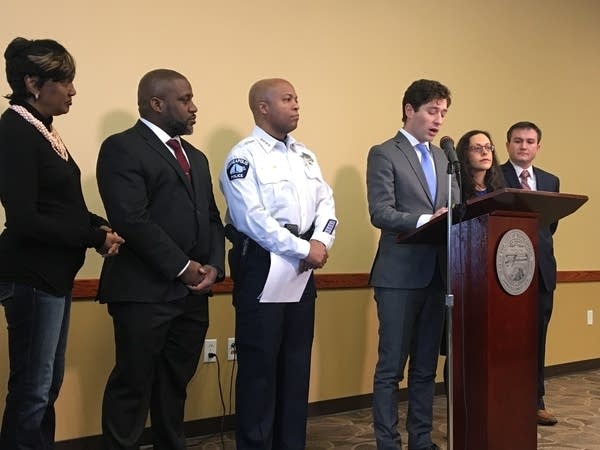Mpls. mayor touts 'stronger, clearer, more precise' body cam policy

Mayor Jacob Frey announces updated body cam policy from North Minneapolis.
Brandt Williams | MPR News
Go Deeper.
Create an account or log in to save stories.
Like this?
Thanks for liking this story! We have added it to a list of your favorite stories.


